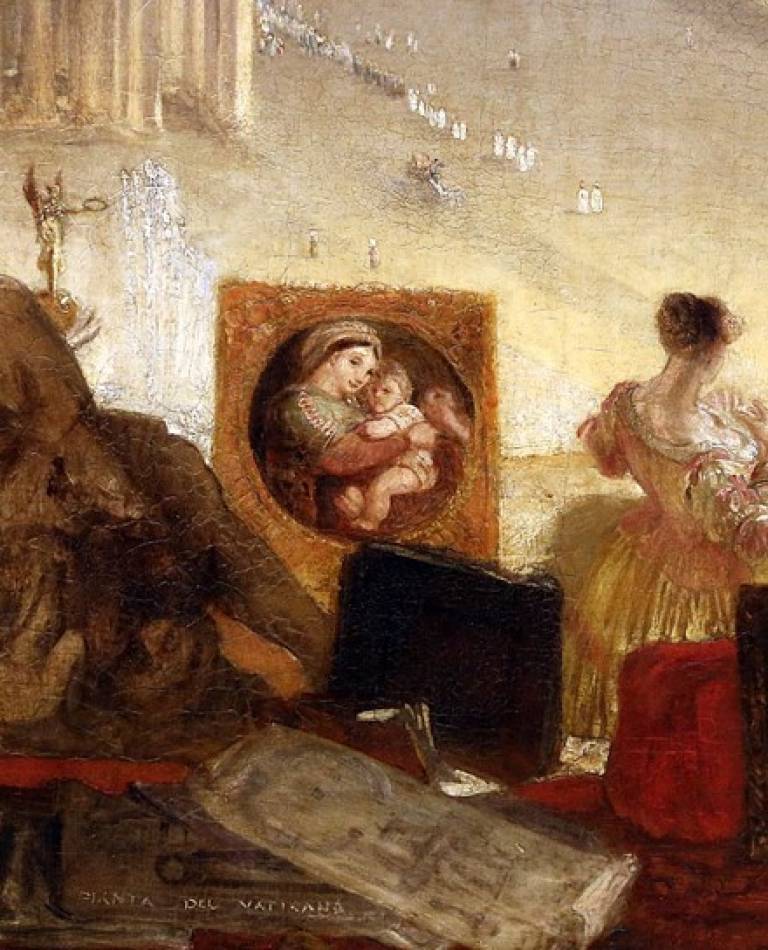‘Happy beyond the common dream’: The uncommon celebrity of Raphael’s ‘Madonna della Seggiola’
27 October 2022, 5:30 pm–7:00 pm

This event is free.
Event Information
Open to
- All
Availability
- Yes
Cost
- Free
Organiser
-
Helena Vowles-Shorrock
Location
-
IAS Forum, Institute of Advanced Studies (IAS)South WingWilkins BuildingLondonWC1E 6BT
Please note that this is a reprise of the Linbury lecture which was held at the National Gallery on 24 June 2022.
Writing to his American readers in 1874 about his visit to the Palazzo Pitti, Henry James rhapsodized about Raphael’s “easy, various, bountiful genius … happy beyond the common dream in his beautiful ‘Madonna of the Chair’.” He goes on to say that “the general instinct of posterity” seemed to have been to treat the picture as “semi-sacred, an almost miraculous, manifestation.” James had already made the painting the protagonist of a short story, The Madonna of the Future (1873) with justified confidence in its cult status. The most copied and among the most famous of Raphael’s works, the tondo can be seen as a portal through time, offering the chance to consider how his art was viewed and valued from the sixteenth century onwards. It provides a case study in changing terms of appreciation and forms of attention. Nothing is known of the painting’s origins, intended owner or first placement beyond the reasonable assumption that it was painted in Rome around 1513. In that way it is as mysterious as it is miraculous, obscure as it is famous. First documented in the Medici collections in 1589, by the beginning of the nineteenth century the picture had literally become legendary. Glossing the composition’s distinctive elements not only gives insight into Raphael’s pictorial vocabulary, but also reveals the many ways that it was understood.
Location: IAS Forum, Institute of Advanced Studies (IAS) South Wing (Wilkins Building). Open event, no registration required.
About the Speaker
Professor Patricia Rubin
Professor Emerita of Fine Arts at NYU
More about Professor Patricia Rubin Close
Close

